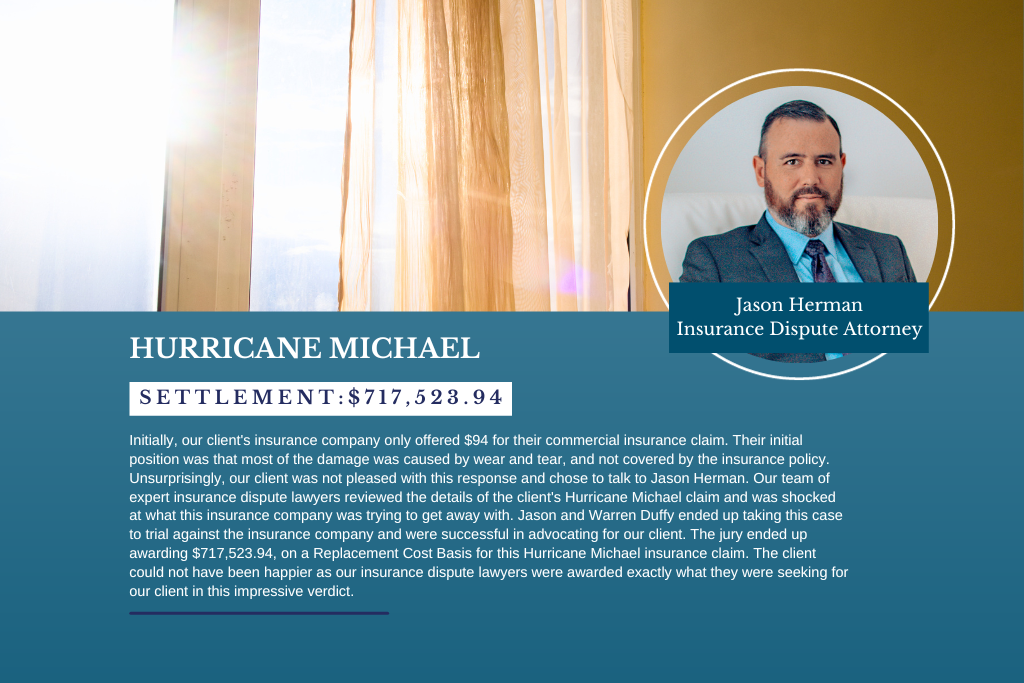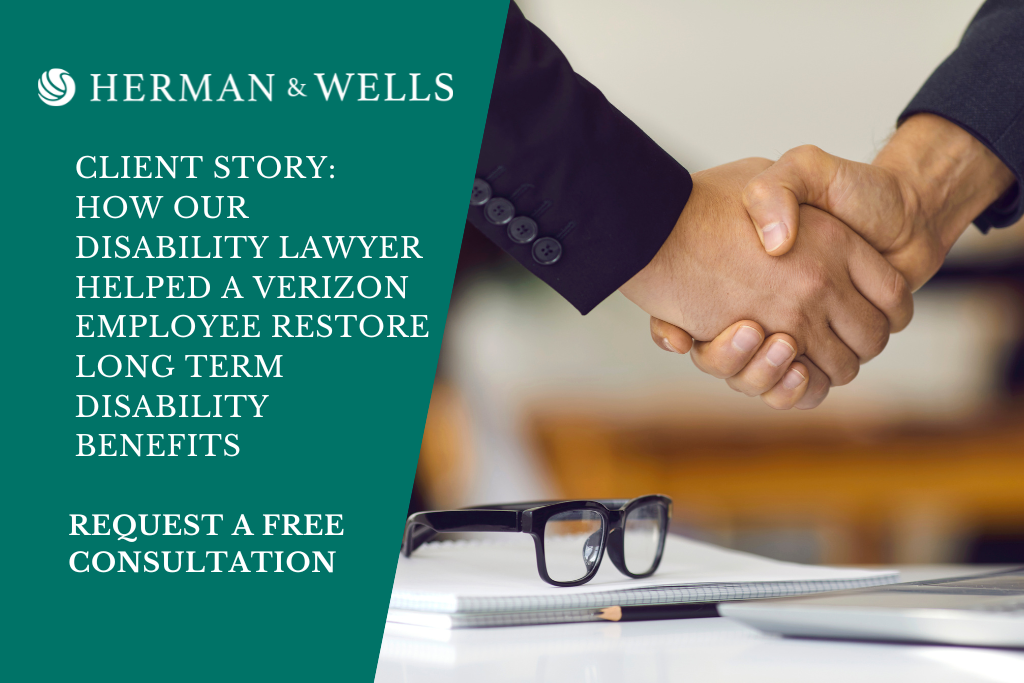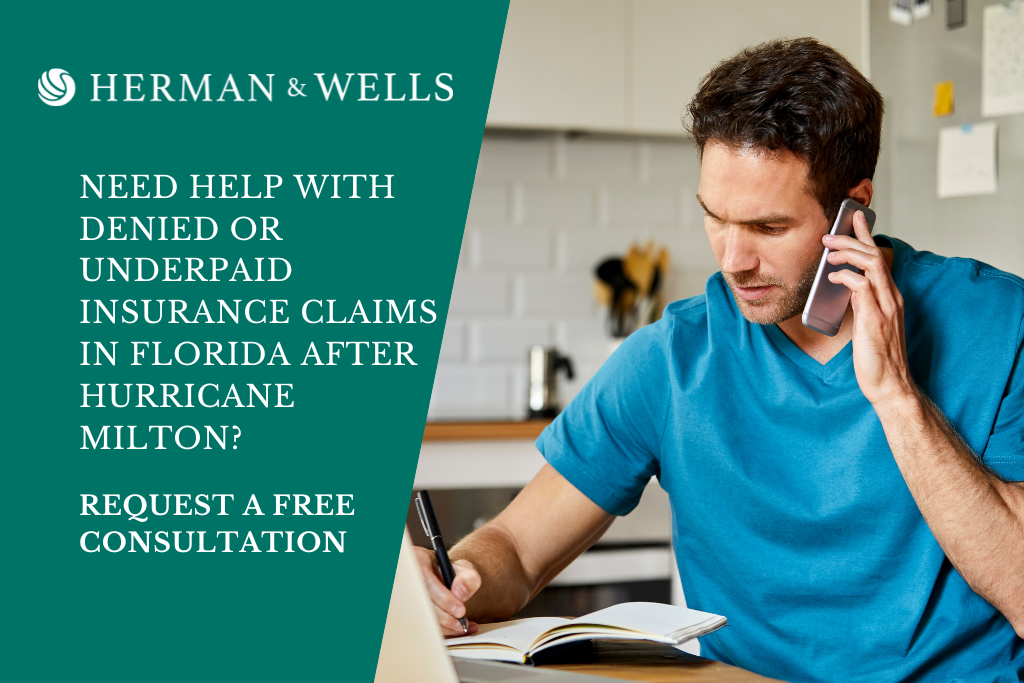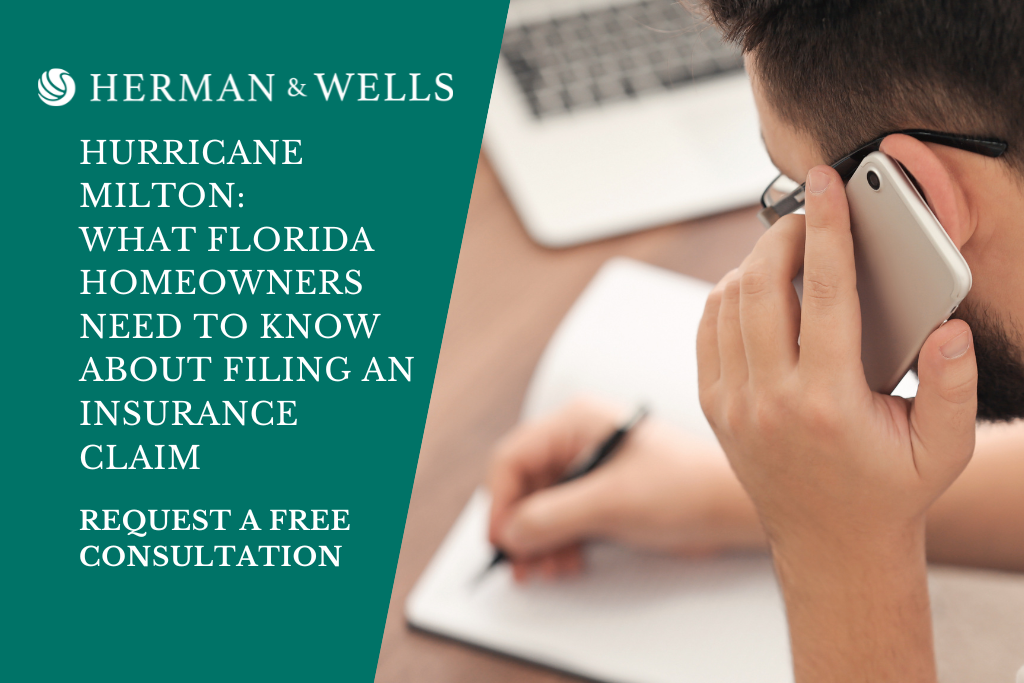When Sarah and her husband returned home after Hurricane Helene, devastation was an understatement. Their roof was gone, water had flooded every corner of the house, and broken windows left debris scattered everywhere. Despite having hurricane insurance, Sarah didn’t know where to begin. Should she start taking pictures? Begin repairs? Call her insurance company? She felt completely overwhelmed—until she reached out to us. With our expert guidance, Sarah quickly went from feeling lost to empowered, knowing exactly what steps to take to begin restoring her home.

If you’re feeling like Sarah did after these recent hurricanes, we’re here to help. Let’s make sure you’re taking the right steps to get the maximum compensation to rebuild your life. Schedule a consultation with our experienced insurance claim lawyers today: (727) 821-3195.
The Cliff Notes: Key Takeaways From This Post
- 1
Essential steps to secure your home after a hurricane: Begin by securing exposed areas, such as broken windows and damaged roofs, to prevent further harm. This not only protects your property but also demonstrates proactive measures to your insurer.
- 2
How to document damage properly for your insurance claim: Take clear, well-lit photos from multiple angles, focusing on both wide shots and detailed close-ups of affected areas. Thorough documentation strengthens your claim and provides a solid foundation for negotiations with your insurer.
- 3
Understanding the fine print of your hurricane insurance policy: It’s crucial to fully understand what your policy covers, especially regarding wind versus flood damage. Many homeowners are surprised by these exclusions, so reviewing your policy thoroughly helps prevent unexpected denials.
- 4
Why hiring a professional assessor early can save you time and stress: Hiring a professional assessor ensures accurate damage documentation and strengthens your position during the claims process. Acting quickly with an expert on your side increases the chances of a fair settlement from your insurance company.
- 5
Timing and tactics for filing your insurance claim effectively: Filing your claim as soon as possible with proper documentation is key to speeding up the process. Being organized, timely, and responsive improves the likelihood of a swift and favorable resolution.
- 6
How we can help: Contact Herman & Wells for a consultation at (727) 821-3195.
Securing Your Home Post-Hurricane: Immediate Steps
When Sarah first saw the damage to her home, her instinct was to start cleaning up right away. However, in those early moments, it’s crucial to pause and focus on securing your property without altering any of the existing damage. This means covering exposed areas—like broken windows or a damaged roof—with tarps or plywood to prevent further deterioration. These steps not only protect your home from more damage but also strengthen your insurance claim by demonstrating that you took immediate, responsible action to minimize additional losses.
Essential Safety Checks Before Re-Entering Your Home
Once the storm had passed, the first thing Sarah did was check for safety hazards before stepping back inside. She carefully inspected for downed power lines, gas leaks, and structural damage that could pose a risk. Re-entering your home too soon or without taking the proper precautions can be dangerous. Before doing anything else, make sure your home is safe to re-enter. If you have any doubts, it’s always best to consult professionals like electricians or building inspectors to assess the situation and keep you safe.
Documenting The Damage: Follow This Guide
How To Photograph Your Property For Insurance Claims
Sarah knew she needed to document the damage, but she wasn’t sure just how detailed she had to be. We guided her to take clear, well-lit photos from multiple angles, along with close-ups of specific problem areas like her collapsed roof and waterlogged floors. Thorough documentation is essential for a successful insurance claim—it shows the full extent of the damage and supports your case. To do the same, take plenty of photos and videos, making sure to capture every detail, from minor cracks to major structural issues. The more evidence you have, the stronger your claim will be.
Creating A Detailed Inventory Of Damages
Beyond photographs, Sarah compiled a list of everything damaged in the storm—furniture, appliances, and personal items. She documented what was broken, estimated the value, and noted when each item was purchased. This detailed inventory helped strengthen her insurance claim by providing a clear picture of the loss. Do the same by cataloging both large and small items and including as much detail as possible.
Initial Contact With Your Insurance: What To Say And What Not To Say
When Sarah first called her insurance company, she wasn’t sure how much information to provide. We advised her to keep the conversation factual, and focus solely on the details of the damage. While it’s natural to feel frustrated and want to vent, it’s important to stay focused on the facts. The key is to be clear and concise when describing the damage, without speculating on causes. This approach helps ensure your claim stays on track. Here’s what you should keep in mind when talking to your insurer:
Common Pitfalls In Initial Communications With Insurers
A common mistake homeowners make is offering too much information or using emotional language. Sarah avoided this by preparing her key points in advance. She stuck to the facts: what was damaged, when it happened, and what she’d done to secure her home. Keep your conversation straightforward, and if you’re unsure, we can help guide you through this step.
Do You Understand Your Hurricane Damage Coverage Policy?
Sarah’s biggest surprise was discovering parts of her damage weren’t covered by her hurricane insurance policy. Many homeowners believe they’re fully protected, only to find exclusions buried in the fine print. Knowing what’s covered—and what isn’t—is critical, especially under stress. We walk our clients through their policies to ensure they fully understand their coverage and create plan of action to secure rightful compensation.
Specific Coverages And Exclusions In Hurricane Policies
Hurricane policies can be tricky. While they often cover wind damage, water damage from flooding is usually not included. For Sarah, this meant that certain parts of the water damage to her home weren’t covered under her hurricane policy. If your policy doesn’t include flood damage, you could be left paying out of pocket for significant repairs. That’s why it’s so important to fully understand what’s covered in your plan. If you find gaps in your coverage, like missing flood protection, our team can walk you through your options and help you navigate the next steps.
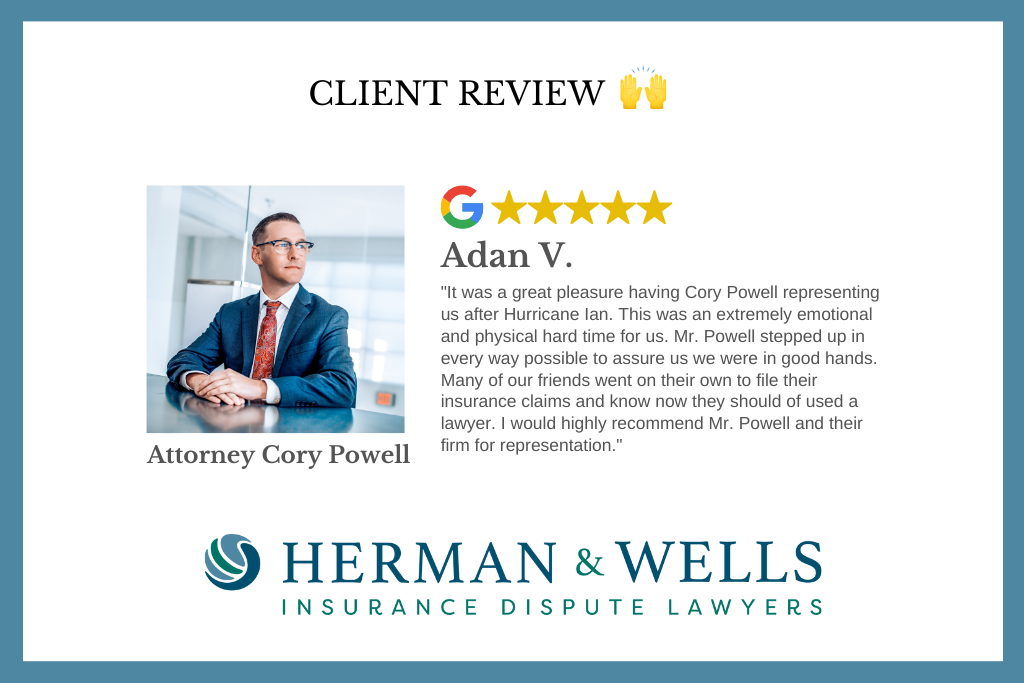
The Benefits Of Hiring A Professional Assessor Early
One of the best decisions Sarah made was to hire a professional assessor right away. By having an expert on her side, she ensured that the full extent of her damage was properly documented. The earlier you bring in an assessor, the better your chances are of a fair settlement.
When And How To Engage A Claims Adjuster Or Lawyer
Sarah didn’t wait for her insurance company to send an adjuster—she hired one of her own. Independent adjusters work on your behalf, ensuring the insurance company doesn’t downplay the damage. In more complicated cases, like Sarah’s, hiring a lawyer early can also help ensure a smoother claims process.
Filing Your Claim: Timing And Tactics
Timing matters. Sarah filed her claim within days after of the hurricane, which worked in her favor. We advise homeowners to file their claims as soon as possible, with all documentation ready. The more prepared you are, the quicker your claim will be processed.
Strategic Considerations For A Swift Claims Process
Sarah’s claim moved quickly because she had her documentation and inventory in order, along with a clear timeline of events. To ensure your claim is processed swiftly, stay organized, respond to insurer requests promptly, and keep copies of all communication. When you hire one of our hurricane insurance claim attorneys, then can handle all aspects of your claim from start to finish and correspond with the insurance company on your behalf — saving you time and minimizing the stress.
Insurance Provisions For Living Expenses During Home Repairs
Sarah had to leave her home for several months while it was being repaired. Thankfully, her policy covered additional living expenses like hotel stays and meals. If your home is uninhabitable, check your policy for provisions on temporary living expenses. These costs can add up, so it’s crucial to know your rights and entitlements.
Hurricane Damage To Your Florida Home? Schedule A Review With Our Experts To Start Your Recovery
Like Sarah, you don’t have to go through this alone. We’re here to help you secure maximum compensation to rebuild your home, navigate the insurance claim process on your behalf, and recover from the storm. Our hurricane insurance claim experts are here for you and ready to review your case!
Don’t wait—call (727) 821-3195 or use our online form to schedule your free consultation today and start your path to recovery.
